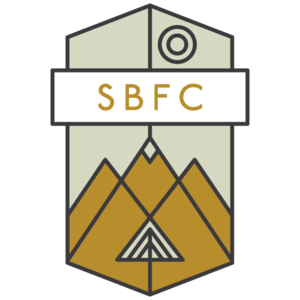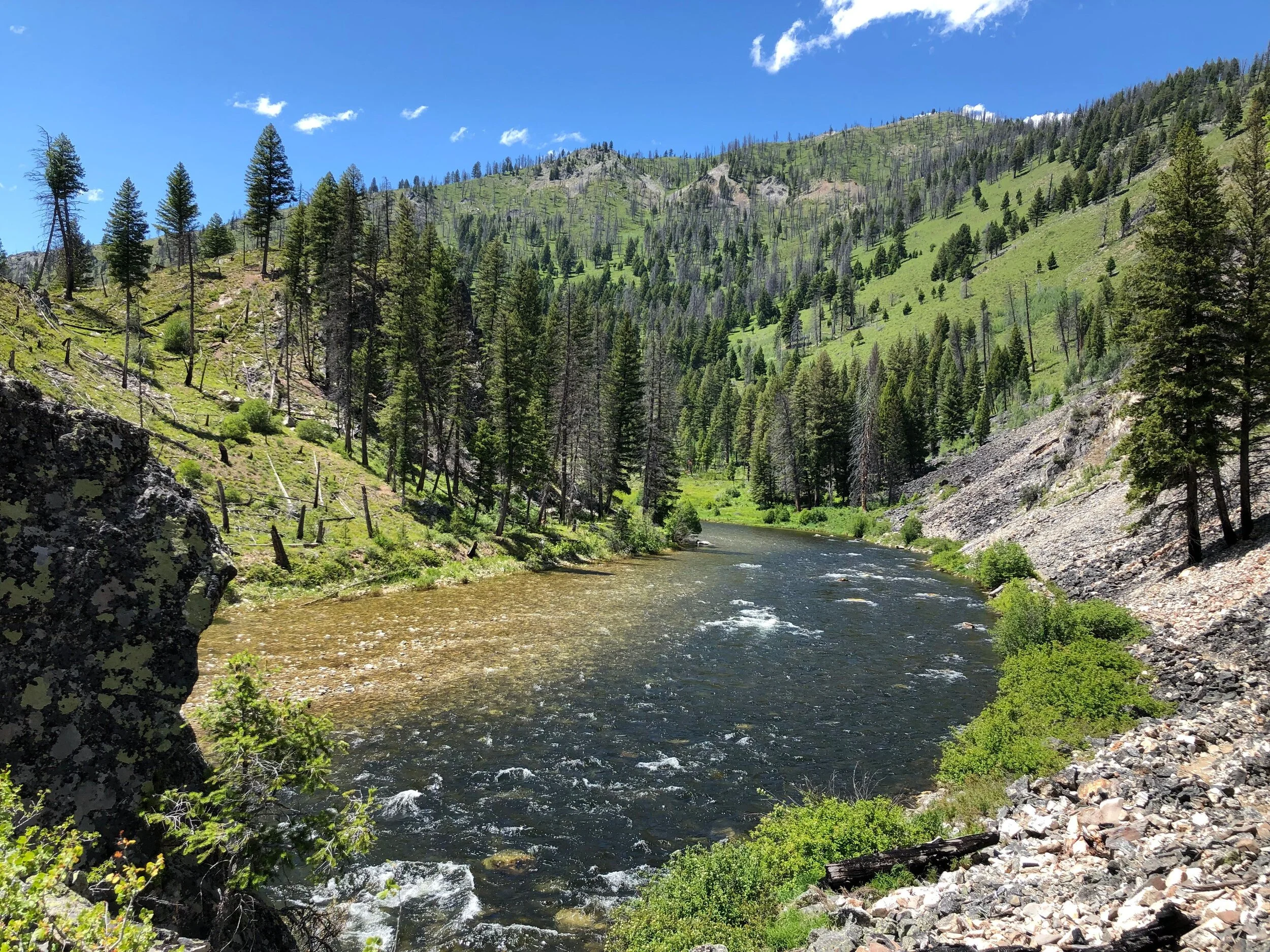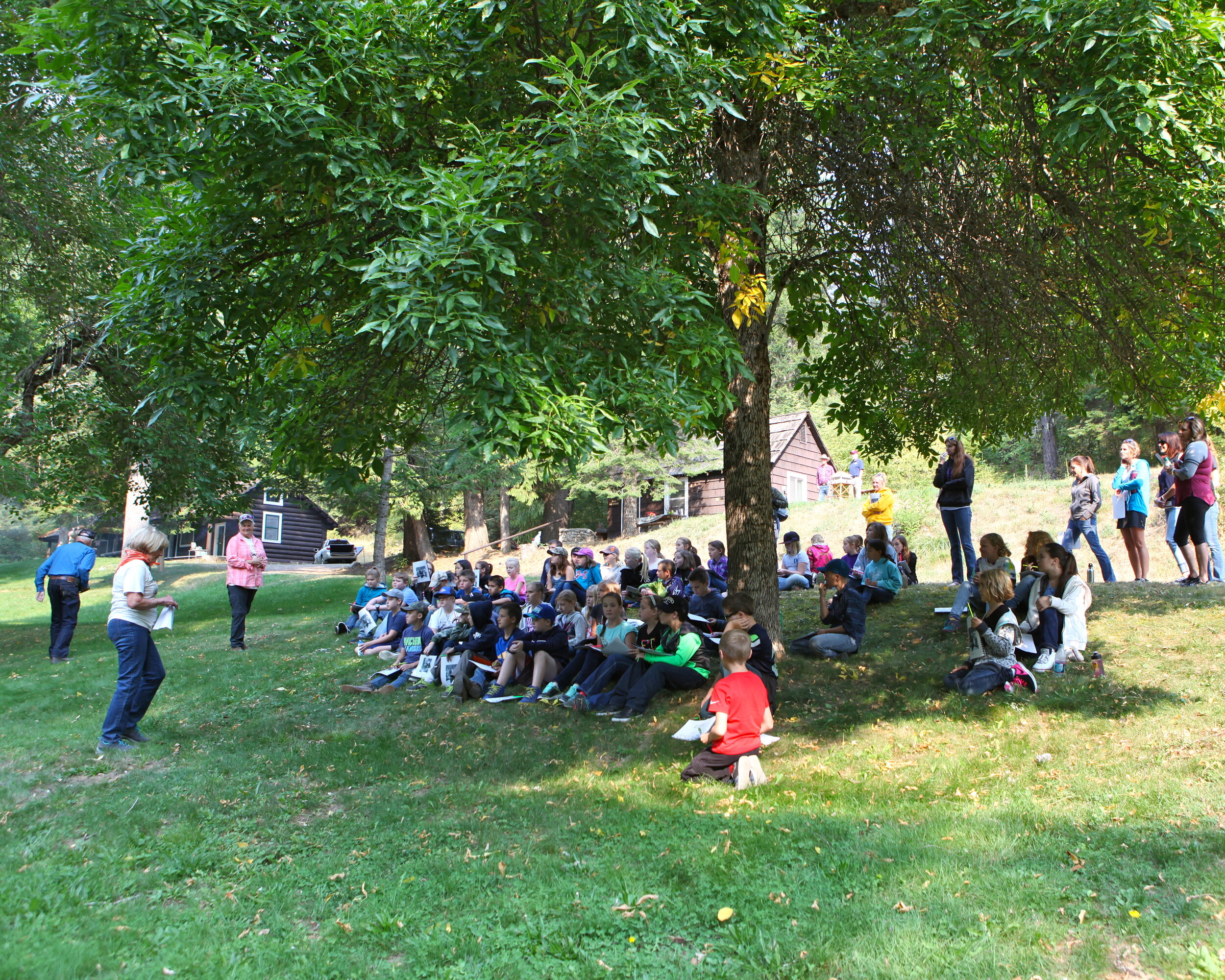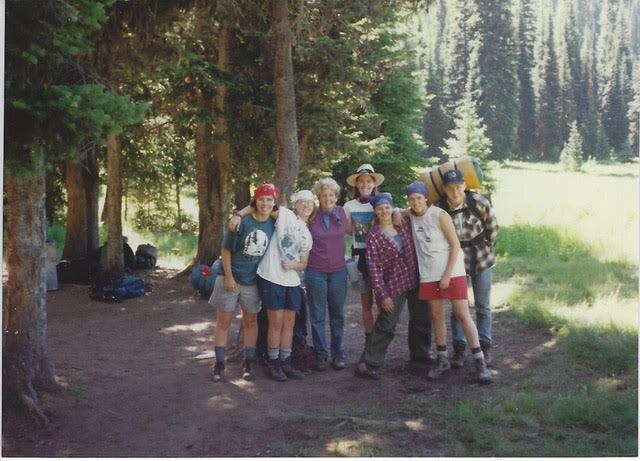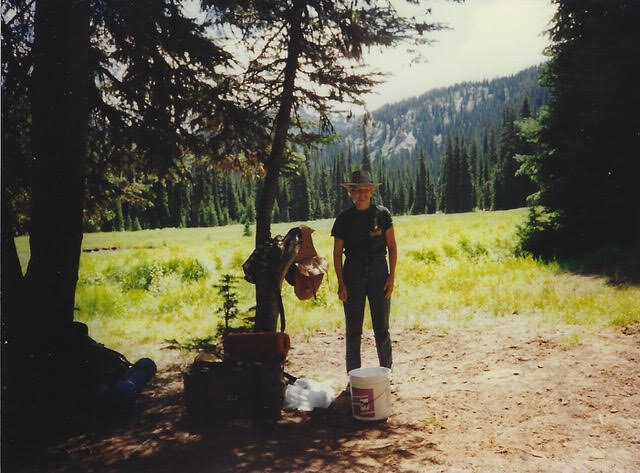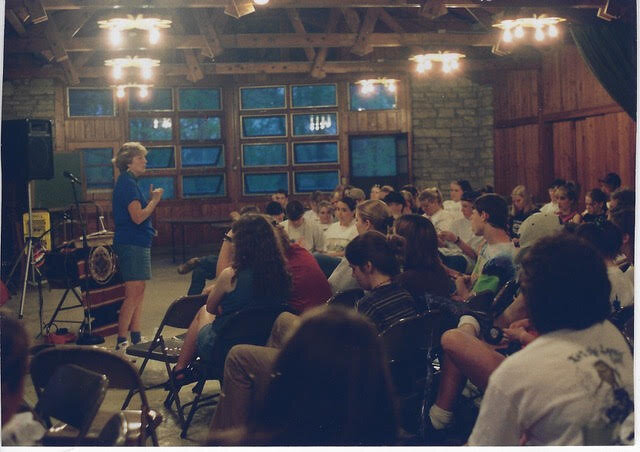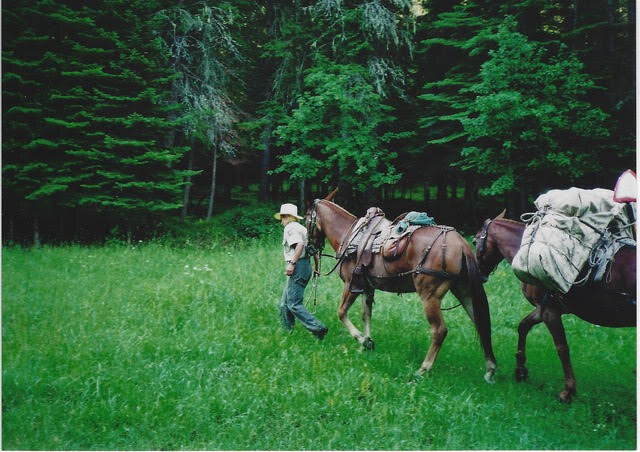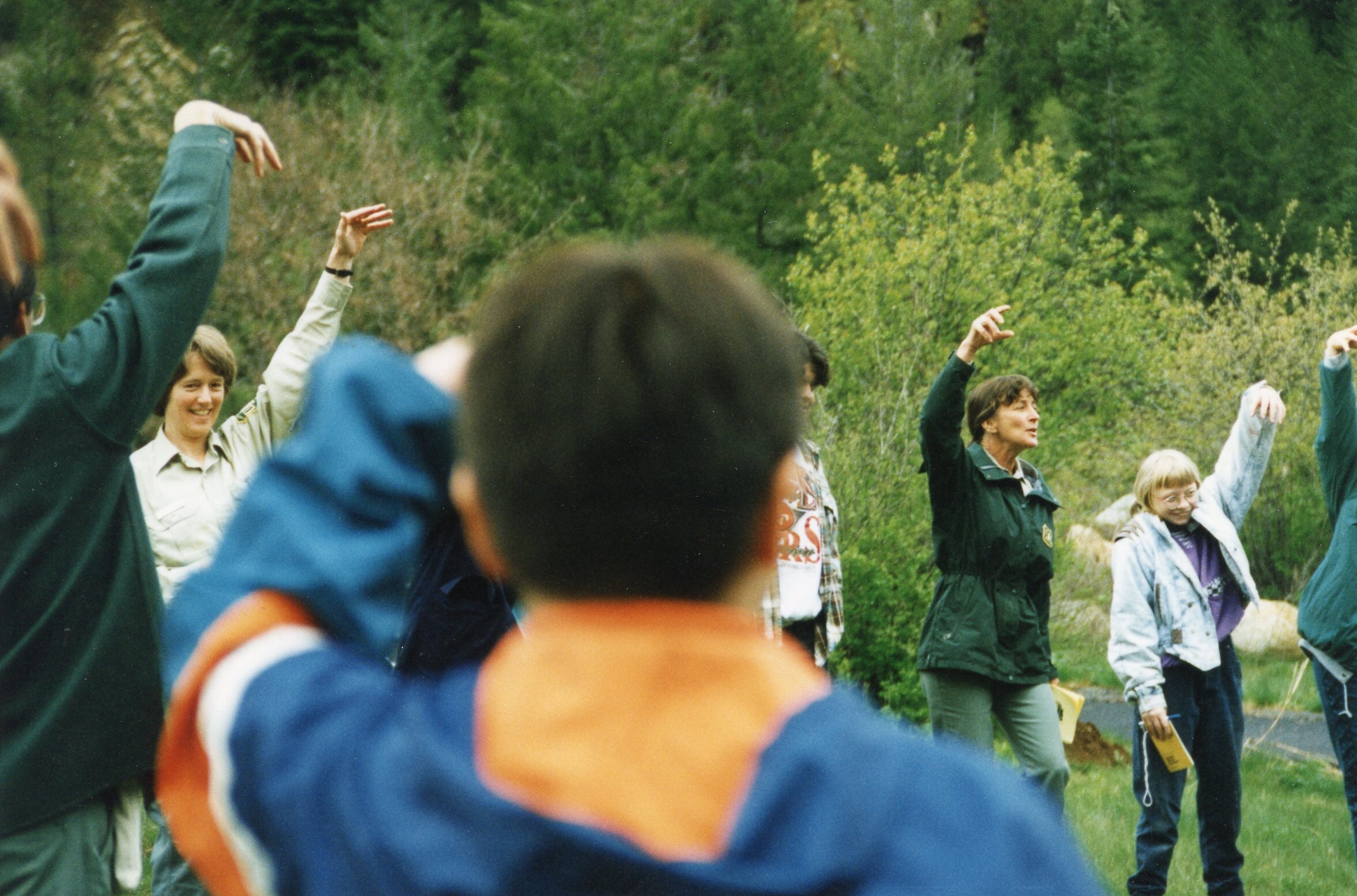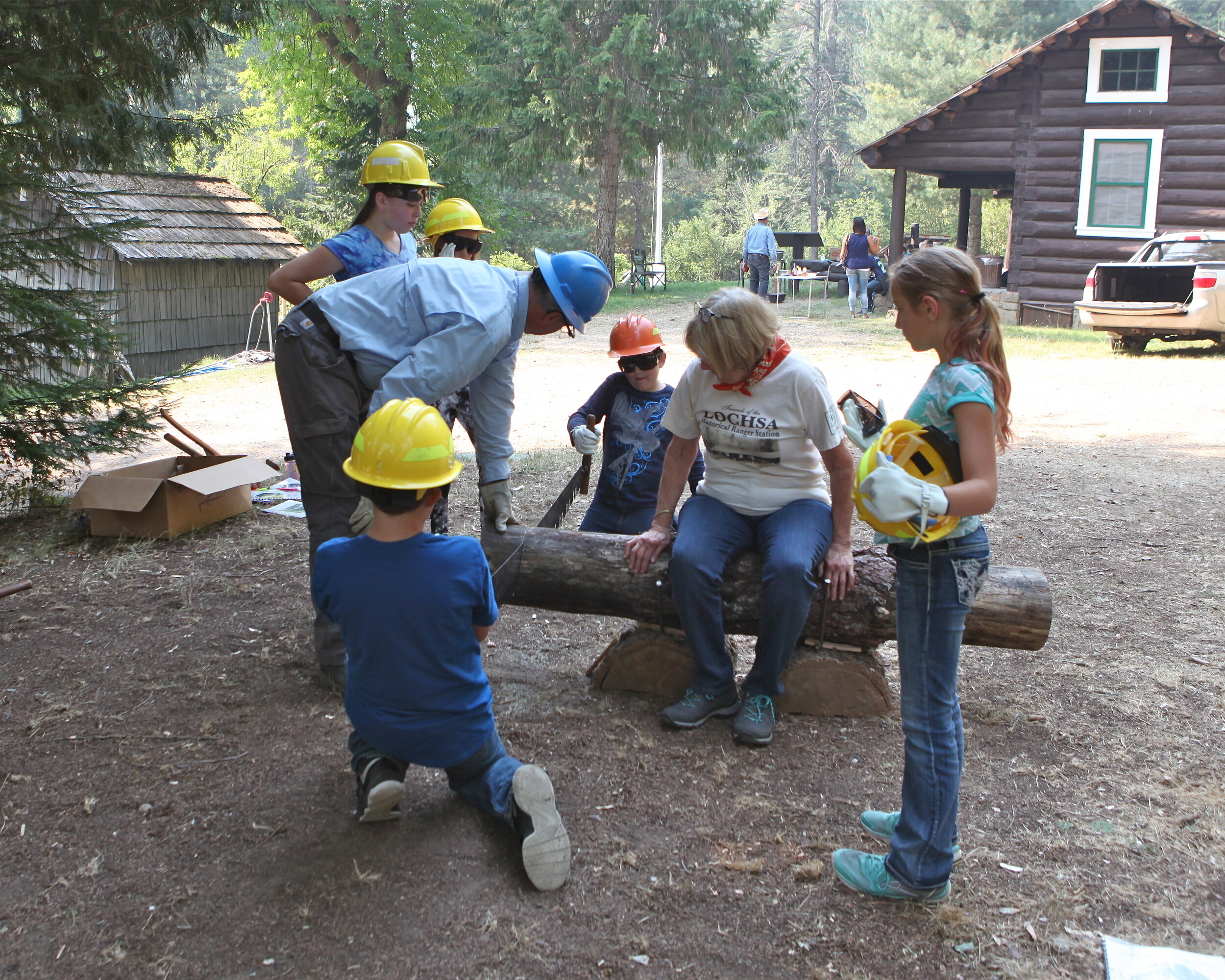Connie Saylor Johnson Wilderness Education Grant
The Connie Saylor Johnson Wilderness Education Fund was established in 2019, to honor the memory of Connie Saylor Johnson. This fund enables the Selway Bitterroot Frank Church Foundation to provide incentive grants for educators and educational organizations to incorporate the stewardship of wilderness and natural ecosystems into classroom and/or outdoor curriculum.
Apply for the CSJ Wilderness Education Grant
Applications for the 2025 grant cycle are closed. Applications will open on April 1, 2026.
Please contact csj@selwaybitterroot.org to request a paper application or with questions.
See below for grant FAQ’s, instructions, etc.
Connie and students in the Selway-Bitterroot Wilderness
Connie believed in the power and necessity of Wilderness education. Her passion for getting people into Wilderness brought generations of students into the Selway-Bitterroot Wilderness. Connie worked tirelessly to provide experiential opportunities for school children, college students, and adults from across the United States to learn about Wilderness and contribute to the care and stewardship of her beloved Selway-Bitterroot and Frank Church River of No Return Wilderness areas in Montana and Idaho.
APPLICATION DETAILS:
You must answer all questions on the application form and include a detailed budget. Grant requests may be up to $2000. Applications must be received on or before October 31st each year.
Grants are awarded and funded in January/February each year.
Final grant reports from recipients and a summary for the SBFC newsletter are due 30 days after completion of the grant project.
ELIGIBILITY:
Any non-profit organization, institution, individual, or ad-hoc group based in Idaho, Montana, or Iowa may receive a grant. Examples of eligible applicants include, but are not limited to:
· Elementary and secondary teachers and schools
· Museums
· Historical societies
· Public libraries
· Arts organizations
· Colleges and universities
· Tribal governments or affiliated cultural agency
· Indigenous NGOs
· Local or county governments
Informal groups organized solely to submit a grant may also apply for funding. Applicants need not be incorporated as a non-profit organization or have official tax-exempt status, but they must be able to demonstrate that they are “not for profit” and that they can manage all aspects of the project adequately.
EXAMPLES OF PROJECTS CONSIDERED ACCEPTABLE (BUT NOT LIMITED TO) ARE:
Write curriculum to integrate wilderness history, science, philosophy and/or culture into existing school programs.
Attend or create workshops or trainings to learn/teach about educational values of wilderness.
Bring guest speakers to classrooms and community events.
Create field experiences for elementary and secondary students or community members, such as hands-on training for Leave No Trace camping, backcountry skills, campsite and trail restoration or other skills that contribute to stewardship and thoughtful use of wilderness.
ASSISTANCE:
If necessary, SBFC staff will make special arrangements to provide the guidelines in other formats. These grant guidelines describe the kinds of projects supported through the Connie Saylor Johnson Wilderness Education Fund. Should you have further questions regarding the SBFC grant program or application, please do not hesitate to contact us.
CONTACT:
Please send questions or requests for more information to: csj@selwaybitterroot.org
All donations made to the Connie Saylor Johnson Wilderness Education Fund go directly to providing incentive grants. Your contribution will help educators inspire younger generations to cherish wild places through an integrated curriculum and hands on experience in the classroom. Thank you for your generosity.
